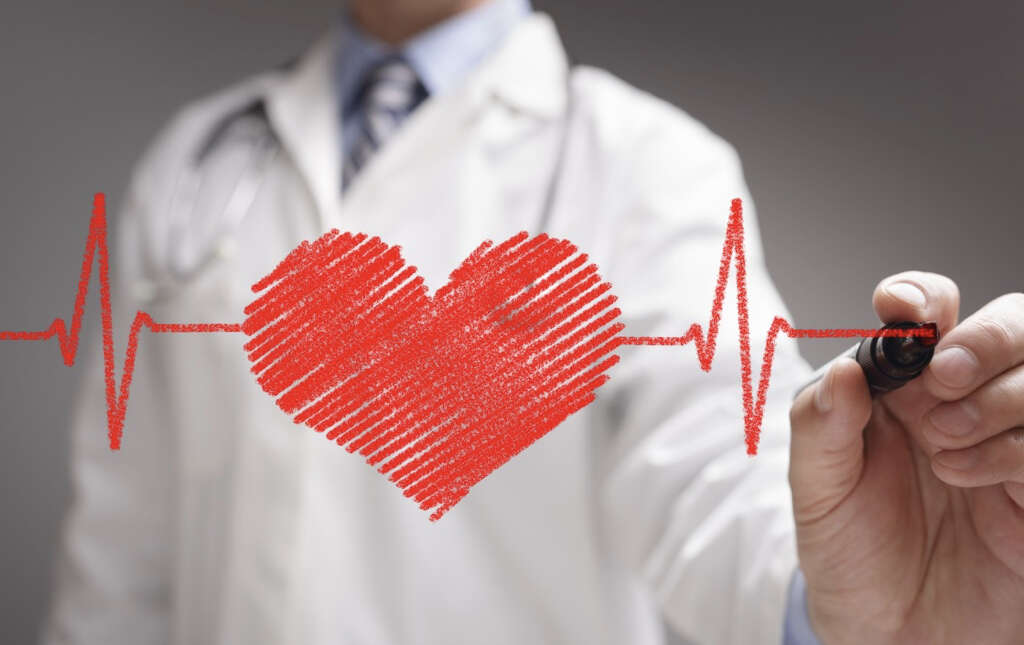What Is Congestive Heart Failure?
If our hearts were to stop working completely then we would only have a matter of seconds to live. Not all heart conditions are quite so absolute, however, and some will cause us to become ill rather than kill us outright. One example of such a condition is congestive heart failure.
Some people will be able to live for a long time with congestive heart failure, and for some, it will make little to no difference to the patient’s quality of life. Despite this it can, and sometimes does, develop into a much more serious condition and it can kill, so it should never be treated with complacency.

1. Congestive Heart Failure
Congestive heart failure, does not mean that the heart has stopped working completely. Rather, it means that it is less effective at pumping blood around the body. In many cases, it is because the heart is no longer strong enough, or has developed other problems that affects its ability to keep on pumping as well as it should be.
When the condition is recognized, it is important the patient takes the appropriate steps to help the heart as much as they can. In a lot of cases, this can mean quite drastic lifestyle changes. It is not necessarily immediately dangerous, but it should still be treated as a very serious condition.

2. No Cure
As things stand, there is currently no cure for heart failure; the heart cannot be restored to its former ability. Having said that, it is still often treatable, and the patient will often go on to have a relatively normal life for many years to come.
It is most likely to be found in older people. After all, it is a long-term condition that gradually gets worse as time goes by. It can affect people of all ages, however, with some people even being born with the condition. When it does happen in children, it is sometimes necessary to take emergency steps to help save their lives.

3. Chronic vs Acute Heart Failure
As mentioned, heart failure tends to be a progressive disease. When the condition first begins, many people will barely notice it, if at all. As time goes by, the condition will gradually worsen and the patient will begin to notice it more and more. It can continue to get progressively worse until it becomes a very serious problem indeed.
Acute heart failure is a condition where the problems and associated symptoms come on rapidly. It can also be a serious condition and anybody showing sudden symptoms should arrange to speak with a medical professional as soon as they are able to.

4. Edema
As our blood is pumped around our body, it is necessary for it to complete a circuit. This means that once it has made the journey down to the bottom of the body, it must make the journey back up again. This is not usually a problem, but the journey back up becomes a lot harder when the heart is not pumping at 100%,
If the heart is not pumping enough to be able to push blood back up the system, then fluids can begin to accumulate at the patient’s feet and ankles. This causes a condition known as edema and there are a number of potential causes of it.

5. Tiredness
The oxygen that we absorb from the air that we breathe helps our body’s cells to generate energy. This means that if there is not enough oxygen in the body, our cells will not be able to generate the energy that it needs. As a result, patients with congestive heart disease will often feel tired.
In addition to feeling tired even at rest, the patient will also feel more tired than usual after any amount of exercise. It is a symptom that is so mild that its barely noticeable at first, but it can become a lot more significant as the condition progresses.

6. Breathlessness
When our body needs more oxygen, one of the first things our bodies do is to increase the rate at which we take in air. This should mean that more oxygen is absorbed into the system where it can then be taken to where it is needed. Some of the time, however, it is not the rate at which oxygen is being absorbed that’s the problem, but how it is distributed to the rest of the body.
As a result, congestive heart failure will sometimes leave the patient feeling as though they cannot catch their breath. It can happen even when the patient is at rest, and the symptom will get gradually worse as the condition develops.

7. Other Symptoms
The symptoms already mentioned are those that most people with congestive heart failure are likely to experience at some point. There are also a number of other symptoms that other patients with the condition will experience.
Some people with congestive heart failure will also develop a cough that is persistent. Some will find that the rate at which their hearts beat gets faster in an attempt to compensate for the low oxygen levels in the body. If the brain is not getting the oxygen that it needs, then some people will experience dizziness as a result. Any of these symptoms should encourage you to speak with a doctor.

8. Medical Causes
There are numerous potential medical causes behind heart failure. In same cases, it can be congenital – meaning that the patient is born with the problem. In other cases, congestive heart failure can be something that is acquired through injury by accident or disease.
Problems with heart valves, in particular, can lead to congestive heart failure as faulty valves can decrease the heart’s effectiveness. Another relatively common cause is arrythmias, which are problems with the rhythm of the heart. High blood pressure is another potential cause, and this itself can be a result of some underlying medical conditions. Treating these conditions is often necessary in order to help manage the condition.

9. Lifestyle Causes
In many cases, congestive heart failure can be prevented simply by taking better care of your heart. This can help to prevent conditions like coronary heart disease that can affect the heart’s ability to function properly. Taking better care of your heart tends to mean living a healthy lifestyle.
This means eating well and avoiding food that can clog blood vessels and cause high blood pressure. It also means staying active to get the cardio vascular system working from time to time. It is also wise to avoid other activities that can be harmful to your health, such as smoking and excessive drinking.

10. Treatment
As already mentioned, congestive heart failure cannot be cured as such. However, the condition can be treated to help limit the severity of the symptoms, helping the patient to live as normal a life as possible. Treatment will often involve some form of medication, and multiple drugs may be necessary in some cases.
Some people might be treated with devices that help to ensure the heart is beating at a steady rate. Surgery is also sometimes necessary and, in some cases, a complete heart transplant is deemed necessary. The most effective method of treating congestive heart failure in most cases is to lead as healthy as lifestyle as you can.












